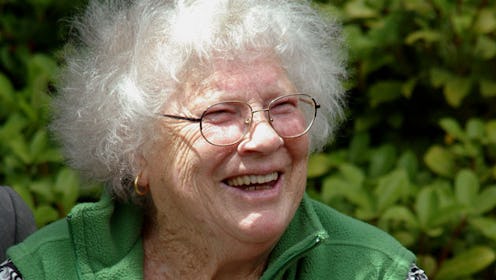Books
Frame's Legacy Endures in the 'Memorial Room'

One doesn’t like to instantly compare an author with her protagonist — it is too easy and often unwarranted. In the case of Harry Gill, however, the main character in the late Janet Frame’s novel, In The Memorial Room (Counterpoint), it is almost unavoidable.
A burgeoning novelist, Gill is the recent recipient of a prestigious literary fellowship, taking him from his native New Zealand to Menton, France, where he is to create a “living memorial” to the poet Margaret Rose Hurndell. So ensconced is he in his work, he finds himself almost engulfed by it, losing his sight and hearing as he disappears into the book. The people around him become less significant, less tangible even, than the subject of his study.
The similarities shared by author and writer, are not limited to their nationalities and occupations. Also the recipient of a prestigious literary award in New Zealand (in her case the Hubert Church Memorial Award) and the Katherine Mansfield fellowship, Frame grappled with severe depression, and was in and out of psychiatric care throughout her young life. Famous, too, for her poetry, it is clear from where Gill’s dark, often tortured tone and hypochondria is derived. He views the world through an ever-narrowing lens as his vision begins to fail, evidence, he believes, of his rather unremarkable nature.
The upside to his wordy meanderings is that Gill is utterly convincing as the melancholic writer. Simultaneously self-indulgent and self-deprecating, he spends pages upon pages waxing poetic on his surroundings and mood, neither of which errs regularly on the side of positive. Indeed, though consistently poetic and elegant, Gill’s musings are often skewed toward a darker interpretation of his circumstances:
…the decayed villas with rust running out of their blank-eyed windows and fragments of twisted iron here and there in the grounds beneath the orange and the lemon trees and the palm trees as if some huge public work, once conceived, had been given up as hopeless.
Much of the novel is devoted to the analysis of the people around him and their infatuation with Hurndell and her work. He details the locals, the expat community that he inhabits, now largely made up of the senior set, departing England to this supposedly more vibrant city only to discover that “Menton is a city of innumerable retirement dreams quietly being wrecked by reality.”
Where Frame particularly excels is in her character descriptions. She maximizes the advantage of her literary protagonist and his somewhat cynical perspective with witty observations. Early on Gill describes a dreamed encounter with Margaret Hurndell:
Her hair was fair to gold, quite short and straight and she was slimly built and rather tall, with exceptionally large hands and feet which I thought ugly. She wore no makeup on her face which was rather too broad to be delicate or beautiful as one imagines beauty, but her eyes were the startling blue which is almost violet and so far known by me only inside fiction.
In these moments, Frame bears her literary chops. Through Gill, she gives voice to her thoughts on and struggles with being a writer. As he begins to lose himself in his work, he describes the “nothingness of (his) nature”, claiming that “A novelist must be this way, and not complain of it, otherwise how shall the characters accommodate themselves in his mind?”
It speaks to her bold and courageous nature that Frame would choose to create such an unsympathetic main character. For, rather than endearing the reader to him, Gill’s self-deprecation seems further evidence of his self-involvement. Nevertheless, he is compelling to watch, and the quality of his observations makes up for his relative unlikeability. At times hilarious and in others, heartbreaking, In The Memorial Room offers a new and revelatory insight into the mind and heart of the wonderful Janet Frame.